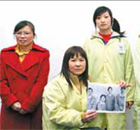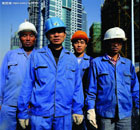Government and Policy
WTO panel to probe China's export cap on rare metals
(Xinhua)
Updated: 2009-12-22 09:52
 |
Large Medium Small |
GENEVA: The World Trade Organization (WTO) decided on Monday to establish an expert panel to investigate alleged Chinese restrictions on raw materials exports.
The panel decision was made following a joint request made by the United States, the European Union (EU) and Mexico. But China said it was disappointed at the move taken by the three parties, maintaining that such an action was "not conducive" to the solution of this dispute.
The United States and the EU first brought the case to the WTO in June, and they were later joined by Mexico. The three parties accused China of violating WTO rules by restricting the exports of raw materials, such as coke, bauxite, fluorspar, magnesium, silicon metal and zinc.
China has said that its relevant export regulations are to "conserve the environment and exhaustible natural resources," stressing the country has "consistently respects and abides by the WTO rules and its own commitments."
Following failed consultations to find a solution to the dispute, the three parties first made a panel request on November 19, but it was rejected by China in accordance with relevant procedures.
At Monday's meeting, the Chinese delegation also expressed concerns about the way in which the three complaints had framed their panel requests.
It pointed out that the three complainants had failed to observe the requirements on panel requests imposed by a relevant article of the WTO's Dispute Settlement Understanding (DSU), thus prejudicing China's ability to prepare its defense in the case.
"Since the complainants wish to proceed with panel establishment today, China will seek a preliminary ruling on the consistency of the requests with Article 6.2 of the DSU," the Chinese delegation said in a statement.
It usually takes 45 days to appoint panelists. And the panel will need at least half a year to finish its investigations and issue a final report.












